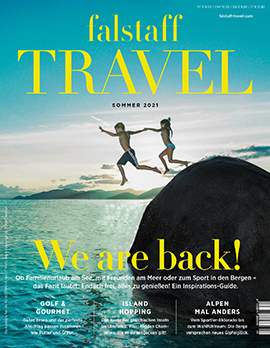
Is the Metaverse Really the Destination of the Future?
Will we soon be vacationing in the Metaverse? Or is that just an outlandish dream of Facebook founder Mark Zuckerberg?
January 14, 2023
Predictions about the future are a tricky one - you quickly make a fool of yourself, at least in retrospect. The project is still in its infancy, but companies are putting up a lot of money to push virtual reality forward. "Five hundred U.S. dollars? That's the most expensive phone in the world, and it doesn't appeal to business users at all because it doesn't have a keyboard," said Microsoft CEO Steve Ballmer when the first iPhone was introduced in 2007. A momentous mistake: Today, the smartphone is considered a milestone in the history of technology. At the time, however, many were relying on the top dog Blackberry, which had already been on the market for a good ten years and was considered the future of the cell phone with its wide keyboard.
It's a similar story with the metaverse, which is currently the talk of the town. No one yet knows what it will really look like, which visions will prevail and have the potential to be suitable for the masses. So far, there are only various ideas for a virtual parallel world in which we will work, communicate, shop and spend our free time in the future. Particularly in the pandemic, this sounded very tempting: being able to travel anywhere despite a home office, meeting other people at least as avatars and going to concerts together; at least being able to go to the beach virtually. The pandemic generated a digital enthusiasm for the future. Many dealt for the first time with cryptocurrencies, which are used as a means of payment in the metaverse. People were astounded at the insane prices of the Bored Ape NFTs, which became a status symbol, and were shocked at the sums paid for a virtual property next to that of US rapper Snoop Dogg in the Sandbox metaverse ($500,000). The public state of mind fluctuated between skepticism and gold-digger sentiment, between total rejection and the hope of earning a lot of money by getting in as early as possible. After all, in the new three-dimensional, digital world of experience, it will be possible to buy land, houses, sneakers, fashion and NFT art. Using blockchain technology - a kind of register in which purchases are recorded - the Internet is to become decentralized, digital, walkable and defined by users. We should thereby rise from passive users to active creators. Part of the Internet will therefore belong to us.
In the future, trips to colorful palm trees will be possible from the comfort of your living room. © Unsplash
Brightly colored avatars
In the meantime, the initial euphoria has faded. The value of cryptocurrencies has plummeted, we know about the many illegal insider trades in NFTs, and the first Metaverse attempts look amateurish. Horizon Worlds is the name of Mark Zuckerberg's version - brightly colored avatars, virtual versions of ourselves, fly through equally brightly colored computer game worlds without lower bodies. Decentraland and The Sandbox also look similarly reduced and retro. Perhaps someone still remembers the computer game Second Life, which caused a furor 20 years ago? Sobering that little has changed since then, at least aesthetically. The avatars are still cartoon characters. Added to this is the lack of security: female users report harassment in the metaverse.
Meta alone, the company that owns Facebook and Instagram, among others, invested ten billion US dollars in the Metaverse last year. But owner Mark Zuckerberg himself estimates that the potential will only fully unfold in ten to 15 years. Currently, 290 companies are working on common standards for the Metaverse, including Microsoft, Nvidia, Google and even Ikea. Although the idea of the Metaverse is still in its infancy, it has already entered the minds of end users: In a recent survey by Bitkom, the German telecommunications industry association, 21 percent of the 1,000 people over 16 surveyed expect to visit foreign countries in the Metaverse with virtual reality glasses in 2030, rather than traveling there in real life. Unsurprisingly, in the group of 16 to 29-year-olds, as many as 26 percent could imagine moving through a digital model of reality as an avatar.
To experience the Metaverse as real as possible, work is underway on high-quality VR goggles. © Stocksy
Sustainable travel
Dive with sharks in the ocean? Set off into space as an astronaut and explore distant galaxies? Balance on a skyscraper? Get to the most remote places in the world? Or even time travel to the Middle Ages? The Metaverse is designed to enable completely new vacation experiences. It would make travel more resource-efficient, sustainable and ecological; you could set off for Antarctica at the weekend from the comfort of your living room. You wouldn't have to be physically fit to stand at the summit of Mount Everest. It would be possible to meet up with friends in New York City. You'd meet there digitally, but in real time at a fancy bar. The metaverse is also an exciting option for live concerts: You're at home, but you feel like you're in the middle of a concert. If everything gets too exhausting, you simply get out and don't switch on again until the encores. Why not also go for a doctor's visit in the metaverse, at least for a quick initial diagnosis? It would also be incredibly illustrative to take students in class on excursions to historical sites.
Virtual Zen Garden © Stocksy
At the moment, work is being done on high-quality virtual reality goggles for considerably less money than usual, which should make it possible to immersively dive into new, digital worlds. People are already training with VR glasses to overcome fear of heights; many museums already offer virtual tours: Without having to go there directly, you can stroll around the Van Gogh Museum in Amsterdam, see the treasures in the Uffizi Gallery in Florence without having to wait in line, or virtually immerse yourself in the Guggenheim Museum in New York. The British Museum in London is also nice as a virtual tour. The website youvisit.com/tour offers 3D helicopter flights over New York City, a visit to the Louvre in Paris or tours of Berlin. It's a good way to set the mood for a real trip because you can get a feel for distances, see where the entrance to a museum is or where a nice café is nearby. Virtual reality tours are a tool that can also benefit travel suppliers: Customers can virtually inspect their hotel room in advance.
Like real life
The catch: So far, everything is recorded and not live. But that's precisely what makes a vacation so appealing, that you're in the midst of bubbly life and not just seeing three-dimensional images. To make the difference concrete: In the Metaverse, you chat with others, go shopping, sit as an avatar in a café, instead of just passively consuming this prefabricated VR world in 3D. The Metaverse is supposed to feel like real life - and be just as exciting and unpredictable. This already works to some extent in live concerts; the German Metaverse platform Yabal, for example, already hosts virtual gigs, but providers such as Sandbox and Roblox are also active in this regard. MTV has even introduced an award for the best Metaverse concert of the year.
Floating office: Business meetings will also be possible in the Metaverse. © provided
South Korea's capital Seoul is currently building a digital twin. All areas of the city administration are to be moved to the Metaverse. In the future, there will be a tax office that you can visit as an avatar, but also a complaints office. Proponents find this practical, opponents see it as a dystopia. After all, don't people in offices have the feeling that they are in a parallel universe where a foreign language is spoken? It's questionable whether artificial intelligence can help you faster than real people. But the beauty of the future remains that it is still open. Perhaps things will turn out quite differently in the end. After all, the refrigerator that buys food on its own as soon as it runs out has been in the news for ages. But no one actually needs it.

This article appeared in the Falstaff TRAVEL issue Winter 2022/23.





